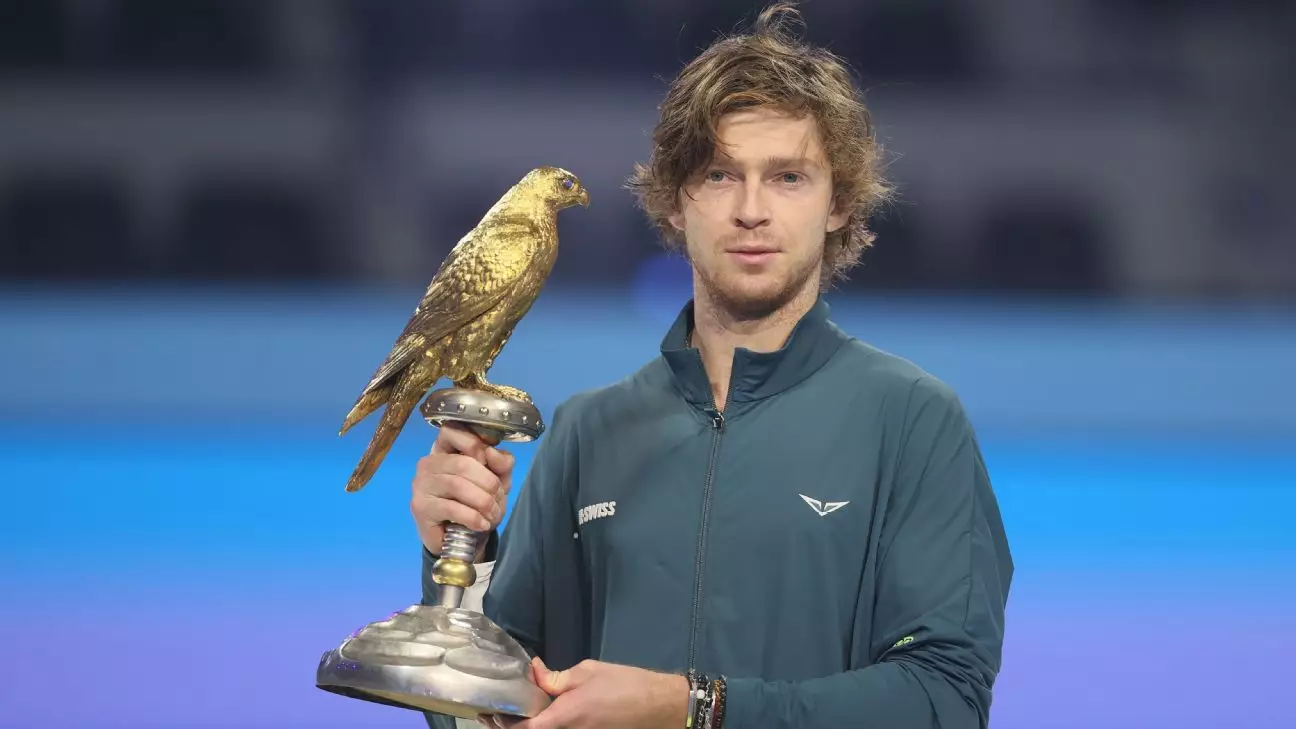In an exhilarating conclusion to the Qatar Open, Andrey Rublev emerged victorious, overcoming Jack Draper in a compelling three-set match that ended 7-5, 5-7, 6-1. This triumph marked Rublev’s second title in Doha, and it showcased not only his exceptional skills on the court but also his remarkable mental fortitude. Winning a tournament such as this, especially after navigating multiple three-set matches, indicates a player who is not just physically prepared but also psychologically resilient.
Rublev’s victory was far from straightforward. Each set tested his limits, particularly in maintaining composure amid adversity. The Russian player, acknowledging his mental determination, stated, “I was really good mentally and didn’t let frustration get over me.” This self-awareness was paramount; often in high-stakes matches, athletes can succumb to the pressure, risking their performance. However, Rublev crafted a strategy that allowed him to reset after moments of frustration, enabling him to maintain a high level of play consistently.
His achievement in the tournament is notable, as this victory marks his 17th career title, solidifying his status as a formidable competitor on the ATP Tour. Reflecting on his victory, Rublev expressed pride in winning a title he first claimed in 2020. “It’s my first ever title that I won twice,” he remarked, emphasizing the significance of this milestone in his career.
The match against Draper posed unique challenges. Both players had endured exhausting battles in the preceding rounds, with previous matches pushing both to their physical limits. Rublev mentioned the fatigue both players experienced, pointing out that “it was difficult, but somehow we were able to play at a good level.” His ability to shift gears after losing the second set was pivotal; Rublev noted, “When I lost the second set, I let it go and started to play more freely.” This ability to recalibrate demonstrates an essential aspect of competitive sports—mental resilience.
Interestingly, Rublev’s history against Draper—improving to 4-0 in their head-to-head matches—depicts a growing rivalry. Draper, conversely, has much to celebrate despite the loss; he is set to achieve a career-high ranking at No. 12. After the match, Draper acknowledged the intensity of their encounters: “We played some tough matches this week, and in the third set, he was just a bit too strong for me.” His respect for Rublev’s performance speaks volumes about their budding competition.
Rublev’s journey at the Qatar Open serves as a reminder of the complexities of professional tennis, where mental toughness is just as crucial as physical preparation. As the ATP season progresses, Rublev’s win in Doha reinforces his credibility as an elite player capable of overcoming adversity. Meanwhile, Draper’s aspirations continue to rise, hinting at exciting matchups ahead. Both players point to a promising future in the sport, fueled by the lessons learned from their hard-fought battles.


Leave a Reply